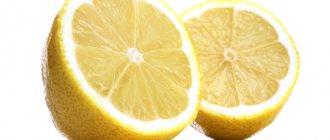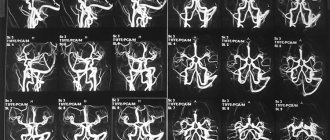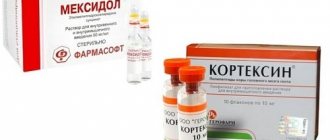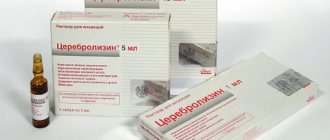“I think, therefore I exist,” as Descartes correctly noted in his time. And indeed, our comfortable existence is largely determined by how well (or not so well) our “central computer” – the brain – works. High-quality nutrition helps preserve cognitive abilities into old age, concentration, good memory and the ability to think and analyze clearly.
Original article written for “Food and Figure”
Nuts and seeds
Everyone knows that to speed up the work of the mental organ, you need to eat walnuts. These nuts contain zinc, potassium, calcium, magnesium, iron and phosphorus. It is these substances that make up the human brain. This is why they are so good to eat. They also contain various vitamins that speed up the process of brain activity.
Brazil nuts contain a large amount of selenium, which has a beneficial effect on the thinking organ. This is the fattest nut.
Pumpkin seeds and sunflower seeds contain zinc, acids, vitamins A and B. All this reduces body fatigue.
The daily portion for the brain, which has a beneficial effect on activity, is thirty to fifty grams.
to contents ^
Alcohol
When consumed in small quantities, alcohol can be a pleasant addition to a wholesome and healthy meal, but if consumed too much and too often, brain problems will be inevitable.
Chronic alcohol consumption leads to a decrease in brain volume, causes metabolic changes in it and disorders associated with the release of neurotransmitters - substances that are used to transmit signals between nerve cells.
People with alcoholism often have a vitamin B1 deficiency. This can lead to a brain disorder medically called Wernicke encephalopathy, which includes pathologies such as memory loss, confusion, and the inability to make basic mental associations.
Alcoholic drinks mixed with energy drinks are the most harmful to health.
There is no doubt that diet is of utmost importance for brain health. While trans fats, refined sugars, and alcoholic beverages have been shown to have detrimental effects on the brain and provide no benefit, it stands to reason that the best diet for keeping the brain in optimal health should consist of whole grains. meat and dairy products of natural origin and fresh vegetables.
Gifts from the sea
It has been scientifically proven that the brain consists of many neurons. If the amount of cholesterol in the body goes off scale, neurons begin to slow down brain activity. To prevent this from happening, it is necessary to consume Omega-3 amino acids.
To do this, you definitely need to eat seafood:
- oysters - scientific research has proven that this food is very useful for the brain, regardless of age. This is because oyster meat is a source of the best elements for quick thinking and the ability to easily perceive various facts. These elements are called zinc and iron;
- salmon and salmon , they also contain Omega-3 and eight amino acids. According to scientists, eating even one serving of red fish per day can reduce the risk of Alzheimer's disease;
- tuna , in civilized countries, is on the list of necessary dishes; it should be eaten at least once a week. Its meat contains phosphorus and iodine, which give clarity to the brain.
Useful to know: Concussion: first symptoms
to contents ^
High glycemic index foods
Some foods can help the brain fight melancholy and despondency, while some can, on the contrary, contribute to the development of depression. A study published in the American Journal of Clinical Nutrition found that postmenopausal women who eat foods with a high glycemic index (white bread, rice, cornflakes and potatoes) are more likely to experience depression. These foods can cause your sugar levels to suddenly rise, causing your body to produce more insulin. Consumption of sweetened drinks, refined foods and baked goods is also associated with an increased risk of depression. However, as the study states, any impact that any of these foods may have will be proportional to the proportion of these foods in the diet.
Article on the topic
Anemia epidemic. Should you give up red meat?
Berries that are good for the brain
Almost all berries are considered healthy food for the functioning of the thinking organ. But blueberries, blackberries and raspberries are especially popular.
Blueberries are in the top three for a reason. It increases learning ability and improves motor skills.
In addition, it perfectly improves visual acuity. It is enough to consume blueberries just once a day for them to be beneficial for the brain.
Raspberries and blackberries are also full of antioxidants, they prevent cell aging, and also speed up the thought process and have a beneficial effect on memory.
to contents ^
Vegetables to the rescue
Vegetables are foods that are essential for nourishing the brain.
Carrots are a real storehouse of vitamins. Contains luteolin in excess, which is necessary to reduce age-related memory loss and to reduce the risk of inflammatory diseases of cortical cells. Almost everyone also knows that carrots contain carotene, which improves vision.
One vegetable or 200 grams of juice is enough to nourish the body with useful substances.
Beetroot, this vegetable is enriched with all the elements that bring the best to our body: iron, iodine, glucose. Doctors recommend eating no more than 150 grams per day, both raw and cooked. But beet juice is better mixed with some other juice.
Cabbage and spinach.
What else is needed for the rapid activity of the human brain?
These vegetables contain vitamins B6 and B12, folic acid, and a lot of iron. Children, as a rule, do not like these vegetables. But when they grow up and find out what a healthy food it is, they will thank you very much.
to contents ^
How to keep your brain healthy?
To maintain brain productivity, you don’t need to spend money on expensive medications or gather a consultation of doctors. Each of us can maintain clarity of mind; all we need to do is change our lifestyle a little.
We have prepared several recommendations for you:
- Eliminate bad habits. Smoking and drinking alcohol have never benefited anyone. Your body will thank you, and the efficiency of your brain will increase significantly.
- Play sports. Spend at least 30 minutes a day exercising or taking long walks outdoors. Soon you will notice how your sleep will improve, your mood will improve, your energy will increase, your body will become more toned and your muscles will become toned.
- Improve your sleep quality. Darken the room and remove all sources of noise. Remember that melatonin is produced in complete darkness. Establish a regime of activity and rest, allocating 6-8 hours of sleep daily.
- Chat and have fun. Having fun and relaxing in the company of other people is good for the brain because it helps reduce stress levels in the body and triggers rejuvenation processes.
- Minimize your time spent on the Internet. Instead, chat with friends, go for a walk, or read a book. The latter, by the way, is useful not only because it will make you more erudite, but also because it uses those areas of the brain that may not be included in ordinary life.
- Increase the complexity of the tasks. By regularly training your brain by solving complex issues and mastering new skills, you start the process of forming new neural connections, thereby keeping your brain youthful for many years. You can train your brain anytime and anywhere. And our online program “Cognitive Science” will help you with this, in which you will not only study in detail many thinking techniques, but will also be able to immediately apply them in practice.
- Eat right. Eat foods rich in vitamins, minerals and other beneficial substances. Don't skip breakfast, as skipping it leads to a decrease in blood glucose levels, which, in turn, negatively affects brain function. Eliminate junk food from your diet and add vegetables, berries and fruits to it on a regular basis. Don't forget about your drinking regime. Drink 2 liters of clean water per day (black tea, coffee and sugary drinks are not included in this number).
Introduce into your life such good habits as healthy eating, physical activity, regular brain training and maintaining a sleep schedule and you will forget about problems with memory, concentration and maintain brain health for many years.
Fruits are a storehouse of vitamins
Pears, apples, apricots are the healthiest fruit products. They possess the most important element for the human brain - iron.
Good to know: Anticonvulsant pills for epilepsy
Iron helps supply our brain with oxygen, which improves mental clarity. You need to consume at least 300 grams of fruit per day.
to contents ^
Egg yolk
During aging, cells in the cortex of the thinking organ slowly die off. This is an inevitable process, but you can slow it down with the help of egg yolk. It contains a strengthening element - choline, which is like a strong foundation for our brain cells. It also improves memory.
The yolks contain lutein, an ingredient that reduces the possibility of heart attacks and strokes. An important element in egg yolks is lecithin, which fights free radicals and slows down aging.
But remember, you can’t overuse eggs. Everything is good in moderation. One or two eggs a day will be enough.
to contents ^
A little biology: what is needed for the brain to function?
Attention, thinking and memory are active and energy-consuming processes. Therefore, for the brain to function, it requires a lot of oxygen and energy, which can only be obtained from food. During digestion, it breaks down into proteins, fats and carbohydrates. After their oxidation, an ATP molecule is formed, which, like a messenger, carries energy to the cells.
Most ATP molecules are produced by the oxidation of carbohydrates. Therefore, eating chocolate before a test or exam is a healthy habit.
bitter chocolate
Chocolate and cocoa contain many beneficial antioxidants, which are very beneficial for our tired brain. Just a couple of teaspoons of cocoa contains more of it than other foods.
The main antioxidant found in chocolate is flavonol. It improves blood circulation and protects the organ from oxidative processes, which can subsequently lead to Alzheimer's disease.
In addition to flavonol, chocolate contains anandamide. This substance helps produce the hormone dopamine in the body, which creates a great mood.
to contents ^
Important carbohydrates
In a healthy diet, carbohydrates are of exceptional importance for the functioning of both the nervous system and the heart and other organs. Eat more complex carbohydrates. They take longer to break down, and as a result, the body uses them as a continuous source of energy.
Related article Three minutes and done. Is it possible to cook tasty and healthy meals in the microwave?
Additionally, eating the right carbohydrates helps increase serotonin levels, which reduces anxiety and calms nerves. All berries, fruits and vegetables containing vitamin C, a universal antioxidant, are good for the brain. For example, black currants, citrus fruits, sweet and bitter peppers, green onions, radishes, rose hips.
Spicy food
Some people like to add spices to their dishes, while others believe that they are harmful to health. But this is not true, spices not only improve the taste of the dish, but are also beneficial for our health.
What spices are not only possible, but also necessary to add when cooking?
- Curry . The main component found in the seasoning is curcumin. It contains a huge amount of antioxidants that fight organ aging. And they preserve cognitive functions, which deteriorate with aging.
- Saffron is truly the “king” of seasonings. It contains a huge amount of minerals, B vitamins and ascorbic acid. This seasoning improves the activity of our main organ, makes vision sharper and has a beneficial effect on the human nervous system.
- Cinnamon . This spice removes excess salts from our body and speeds up the functioning of the organ. All this happens with the help of three main substances that cinnamon contains: brown aldehyde, brown alcohol and cinnamyl acetate.
Useful to know: Treatment of epilepsy with folk remedies: simple recipes
Now it is clear why the people of the East, who add these spices to all their dishes, live to a ripe old age. And why are the people of the East considered sages?
to contents ^
Top 20 most useful products
There are quite a lot of products that provide adequate nutrition and improve blood circulation and brain function in general. Keeping all of them in mind, you can easily create a very varied menu for all ages and for all occasions.
Sea fish and seafood
Fish and seafood are an essential component of a diet aimed at improving the functioning of the brain and the entire nervous system. Phosphorus, iodine, minerals, Omega-3 fatty acids help the brain maintain efficiency and youth . They affect:
- reducing the level of “bad” cholesterol;
- cleansing the walls of blood vessels from fatty plaques;
- active saturation of brain cells with oxygen and nutrients.
People who eat seafood at least once a week are much less likely to complain of poor memory and fatigue . And the likelihood of developing Alzheimer's disease in this case is significantly reduced. For more information on the effect of omega-3 acids on the brain, see a separate article.
For a complete diet, it is enough to choose literally 2-3 types of fish, for example, salmon, tuna, salmon, trout or herring. When it comes to seafood, you should definitely eat seaweed; you can choose squid, mussels, oysters, etc.
Eggs
Lecithin, fatty acids, vitamin B12 are especially needed by the brain. With their lack, organ atrophy begins, which in principle is natural for age-related changes. But they can start much later and be less noticeable.
The most useful component is the yolk of the egg. Contrary to popular belief, it is more likely to be beneficial than harmful, despite the fact that it contains a large amount of cholesterol.
The yolk of an egg contains choline , which nourishes brain cells and neurons, without which they cannot form and exist.
If you eat eggs regularly, it is enough to eat 1-2 eggs a day. With this amount, there is no risk of cholesterol deposition on the walls of blood vessels.
Milk
Milk is necessary for the brain because it contains tryptophan, a substance that is a source for the synthesis of serotonin , the hormone of joy. Therefore, milk must be on the table of anyone who wants to maintain a good mood, optimism and vigor.
In addition, the antioxidant glutathione , which researchers recently discovered in milk, improves neuronal function and helps maintain sanity into old age. The only condition is that milk must be consumed regularly.
Cereals
Nutritionists advise eating a lot of whole grain cereals at any age.
This is important both for the brain of a growing person and for an adult: for both it is equally important to have a good memory. The fact is that oats, wheat, barley, whole rice and bran from them contain a lot of folic acid and thiamine, that is, vitamin B6 .
Thus, porridge and whole grain bread are useful not only as a means of improving metabolism, but also as an excellent stimulator of blood circulation and improvement of brain activity.
Nuts
Seeds and nuts are used both as an independent snack and as an additional ingredient in dishes. They contain everything that brain cells need:
- vitamins E, group B;
- folic acid;
- fatty acids Omega-3 and Omega-6, etc.;
- minerals, including magnesium and potassium.
Nuts such as almonds, walnuts, cashews, peanuts, hazelnuts, pecans, and all types of seeds nourish the brain, provide a lot of energy, improve memory, elevate mood, and even reduce signs of depression. They contain a sufficient amount of fat, so by consuming them, you can be sure of the sufficient supply of vegetable fats in the body.
Green and leafy vegetables, herbs
Some consider these plants to be nothing more than seasonings or food additives. However, they contain so many vitamins important for mental activity that even a single loading dose can help:
- remember or remember a large amount of valuable information;
- increase the productivity of mental activity;
- relieve fatigue.
Greens owe these results to a large amount of B vitamins and folic acid. The value of these substances is that they reduce the amount of homocysteine, which accumulates in the body with age, destroys the walls of blood vessels and leads to pathologies such as memory loss and even Alzheimer's disease.
Berries
The benefits of berries such as blueberries, lingonberries, cranberries, strawberries, raspberries, blackberries, etc. are beyond any doubt. Vitamins, sugars, fiber, antioxidants, flavonoids from berries help:
- under heavy mental stress;
- to improve coordination and memory;
- to preserve youth and increase cell performance.
Even if fresh and frozen berries appear on the table once a week, the quality of mental activity increases noticeably.
Dried fruits
The rich vitamin and mineral composition makes dried fruits an essential product for those who want their head to work quickly and well. Dried apricots, raisins, prunes, figs, dates and other dried fruits and berries:
- reduce the level of “bad” cholesterol in the blood;
- cleans the blood vessels of the brain from cholesterol plaques;
- improve memory and concentration;
- help maintain good coordination.
Dried fruits are not one of those healthy foods that you can eat the more the better. Like nuts, they are consumed in small quantities due to their high caloric content and strong concentration of other substances. A dozen berries or 2-3 tablespoons of a mixture of ground dried fruits is enough.
Honey
Honey is a recognized healer of the cardiovascular and nervous system. With constant mental work, it is definitely needed in the diet as a means of:
- cleanses the blood and blood vessels from “bad” cholesterol;
- helping the functioning of the bloodstream, which means improving cerebral circulation;
- giving a lot of energy.
For more information about the importance of honey for the brain, see a separate article.
Vegetable oils
Unrefined vegetable oils do not contain cholesterol at all, which means they do not contribute to the development of atherosclerosis. Moreover: they help dissolve and remove existing cholesterol deposits from the body.
Unrefined, directly pressed oils also contain vital omega-3, omega-6, as well as less important but beneficial omega-9 unsaturated fatty acids. Thanks to them, as well as the vitamin and mineral composition, oils that are beneficial for the brain:
- help maintain a healthy vascular system, preventing clogging of the arteries;
- strengthen the walls of brain vessels;
- help increase concentration, strengthen memory and reduce the time for the manifestation of neuropsychic reactions.
bitter chocolate
Many people are familiar with the effect that appears after eating a piece of chocolate. This sweetness is not only tasty, but also healthy because:
- improves mood due to the production of serotonin - the hormone of joy;
- improves cerebral circulation;
- thanks to flavonol, it helps preserve the youth of brain cells by fighting free radicals.
A large number of antioxidants are found not only in chocolate, but also simply in cocoa powder. But the most useful product containing cocoa beans is dark and bitter chocolate. There the content of cocoa beans is maximum and reaches 95%. Read more about the effects of chocolate on the brain here.
Coffee
Scientists are constantly arguing about the benefits of coffee for the brain and cardiovascular system.
There are many theories regarding the mechanisms of coffee's effect on blood vessels. One of them is that the coffee molecule is similar to the molecule of a substance that is found in every cell called adenosine.
Adenosine slows down energy production. And when coffee molecules replace adenosine , energy processes in brain cells reach a new level.
Tea
Besides coffee, there are a number of drinks that can help keep your brain functioning at a high level. These include tea. Both black and green teas contain catechins . These unique substances help:
- improve brain activity;
- remember information well;
- relax, restore strength faster.
It is better to drink tea in the morning and afternoon. In this case, you can drink it as much as you want, with benefit for mental activity and without damage to the heart, blood vessels and nerves.
Turmeric
This amazing seasoning comes from India. But it is actively used both in cooking and in folk medicine as a means of excellently helping to increase brain productivity. Turmeric for the brain is interesting because it can:
- relieve inflammation in brain tissue;
- restore neurons;
- destroy sodium benzoate, which interferes with connections between brain cells;
- act as an antioxidant that protects cells from aging;
- give a positive attitude due to the production of the hormones dopamine and serotonin.
Curry
Seasonings have a very good effect on blood circulation, increasing brain productivity and maintaining brain activity.
Besides the fact that it is a spicy seasoning that gives a pleasant taste to dishes, curry:
- supports thinking abilities due to curcumin content;
- helps fight free radicals, that is, prolongs the youth of the brain.
Moreover, you don’t need to think that you need to cover all your food with this seasoning: it’s enough to eat one dish a week to get all the benefits.
Ginger
A spice with a pungent taste and fresh aroma is very beneficial for the heart, blood vessels and brain cells. In folk medicine, ginger is used for treatment, prevention and stimulation of brain activity as a remedy:
- blood thinner;
- improves cerebral circulation;
- with regular use, it significantly improves memory;
- preventing the development of Alzheimer's and Parkinson's diseases.
Ginger can be used either fresh or in powder to improve brain function. Most often it is mixed with lemon and honey. Ginger essential oil is also useful: it is dissolved in milk, kefir or dripped onto honey and sugar.
Lemon
The value of lemon for the brain is associated primarily with its high content of vitamin C, potassium, magnesium and other minerals . Lemon helps:
- cleansing blood vessels from cholesterol growths;
- prevention of overwork and stress relief.
Lemon, consumed fresh, as part of vitamin mixtures and infusions, will have a good effect on mental activity. Lemon essential oil is also effective: it can be used for aromatherapy, and taken orally at the rate of 1-2 drops per glass of fruit juice, teaspoon of honey or per lump of sugar.
Garlic
Garlic, in the absence of contraindications, is required in the diet of every person. In addition to vitamins, valuable minerals, phytoncides, sugars and other important components, garlic contains a specific substance allicin , which is produced after crushing a garlic clove.
The brain needs garlic in its raw form: during heat treatment, only its taste properties remain, while many beneficial properties are destroyed. Fresh garlic:
- improves blood composition, thins it, promoting better blood circulation;
- reduces the production of so-called “bad” cholesterol in the liver, preventing it from depositing on the walls of brain vessels;
- rejuvenates cells by neutralizing free radicals.
Plain water
The brain cannot function normally without sufficient fluid in the body. Often, a feeling of chronic fatigue and drowsiness are signs of a lack of moisture in the body.
The best way to replenish fluid reserves and thereby protect the brain from dehydration is to drink regular drinking water: it is best absorbed without carrying additional calories, such as fruit juice. In addition, it is not a diuretic like coffee or tea.
A more or less suitable alternative to water may be herbal infusions. But even in cases with them there may be contraindications. Therefore, drinking water is the best source of fluid for brain cells.
An adult needs to drink about 2 liters of water per day. This volume can easily be distributed in 2 glasses for the early morning, the time between breakfast and lunch, lunch and afternoon snack, afternoon snack and dinner. If you have problems with the heart, excretory system, etc., you can slightly shift your water intake schedule to the daytime so that you drink all the water before 16 hours.
Dry red wine
Natural red wine has long been known as a means of stimulating brain function and protecting it from premature aging.
The only condition: it can be consumed no more than 50-150 ml per day, depending on gender, age, body size and concomitant diseases. Otherwise, instead of activating and maintaining mental activity, this can lead to progressive dementia.
Red wine contains a good range of microelements and antioxidants , which:
- prevent the development of atherosclerosis by widening the arteries and clearing them of cholesterol plaques;
- protect brain vessels from destruction, strengthening them;
- prevent age-related dementia and prolong youth.









